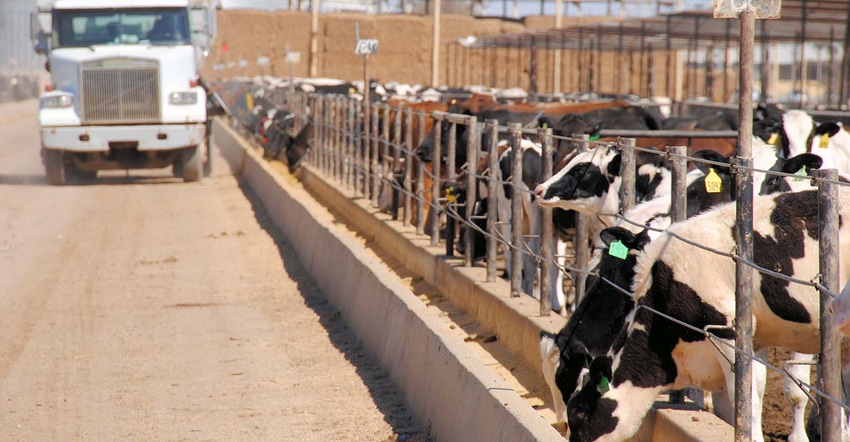
A New York Supreme Court struck down portions of a General Permit which would regulate large concentrated animal feeding operations (CAFOs).
The New York Department of Environmental Conservation (DEC) issued a General Permit under its own water statute and the Clean Water Act (CWA). New York’s DEC regulates CAFOs in the state through regulations, permits, inspections, and enforcement actions. EPA and the State of New York can issue specific CWA permits, or through a General Permit, and the General Permit imposes pollution control requirements that require a CAFO to comply with a set of standards for farm operations.
CAFO pollution control requirements generally comply with Natural Resource Conservation Service (NRCS) standards developed within USDA. NRCS has state specific policies and standards for developing land application effluent guidelines for large CAFOs. In New York DEC has adopted NRCS’ standards that identify Best Management Practices (BMPs) which relate to nutrient management, waste storage facilities, anaerobic digestion processes, waste transfer, vegetative treatment areas, treatment of dead animals and composting.
According to the Court’s decision, DEC has incorporated 10 NRCS standards into its General Permit. In addition, a General Permit requires a CAFO operator to prepare a comprehensive nutrient management plan (CNMP) and an annual nutrient management plan (ANMP).
After DEC published its initial draft for the General Permit, EPA sent DEC a letter in March 2016. EPA said the permit did not address 9 minimum measures relating to adequate storage of manure, litter, processed wastewater, diversion of clean water, appropriate testing of manure, and the handling of processed wastewater and soil.
On March, 10, 2017, EPA sent another letter to DEC suggesting some minor changes such as including a Frequently Asked Question document; on May 25, 2017, EPA again sent a letter declaring its “earlier concerns had been satisfied.”
Remember: a new President was elected at the end of 2016.
Environmental groups object
Environmental groups such as Earthjustice, Waterkeeper Alliance, Riverkeeper, Courtland-Onondaga Federation of Kettle Lake Associations, Sierra Club, and Theodore Gordon Flyfishers, Inc., sued DEC, claiming the state agency and its General Permit failed to meet key requirements of the CWA and its regulations. Specifically, the environmental organizations claimed DEC was not required to review and approve the nutrient management plans before granting coverage to a CAFO. Second, it was alleged DEC did not provide opportunity for public review and comment on whether a nutrient management plan was sufficiently compliant with the CWA.
Finally, the environmentalists charged that DEC “…does not require Comprehensive Management Plans (CMPs) and animal nutrient management plans (AMPs) to set forth enforceable, site-specific restrictions covering the full range of a CAFO’s operations that are at high risk for polluting water.”
CAFOs, by their very nature, are no discharge or zero discharge facilities. The environmental groups seek to use the public review issue as a way of controlling how a CAFO handles its manure on its own land.
‘No persuasive force’
The Court found EPA’s May 25, 2017 letter from Sec. Pruitt’s EPA office to be worthless, or as the Court said “…the letter has no persuasive force.” The Court found that DEC could not grant a General Permit without allowing the public an opportunity for notice and comment.
The DEC had claimed certain portions of the annual management nutrient plan included confidential information from the farm and therefore should not be made public. DEC felt there was a state policy with confidentiality with certain management data from a farm. The Court dismissed that argument.
The Court found the CNMP did not contain the CWA requirements for agency oversight, disclosure and public participation. The Court made the same finding regarding the AMP and said its structure was not in compliance with federal regulations and would be required to be made available for public review.
The DEC did win several portions of the case which related to the fact that CAFOs do not need to develop and implement site-specific effluent limitations.
Environmental groups claim that NRCS standards are not really standards but merely considerations or methodologies. The Court, in reviewing NRCS standards, said that they are relevant standards and contain numerous specific and enforceable requirements.
The Court also supported DEC regarding nutrient application where New York requires “…a lengthy set of detailed protocols governing the amount (rate), source, placement (method of application), and timing of plant nutrients and soil amendments.”
The environmentalists attempted to obtain legal fees for their supposed victory and the Court said no because both parties in this case had prevailed on certain issues.
This case is an indication of how General Permits issued by other states will be challenged by environmental groups.
The opinions of the author are not necessarily those of Farm Futures or Farm Progress.
About the Author(s)
You May Also Like




